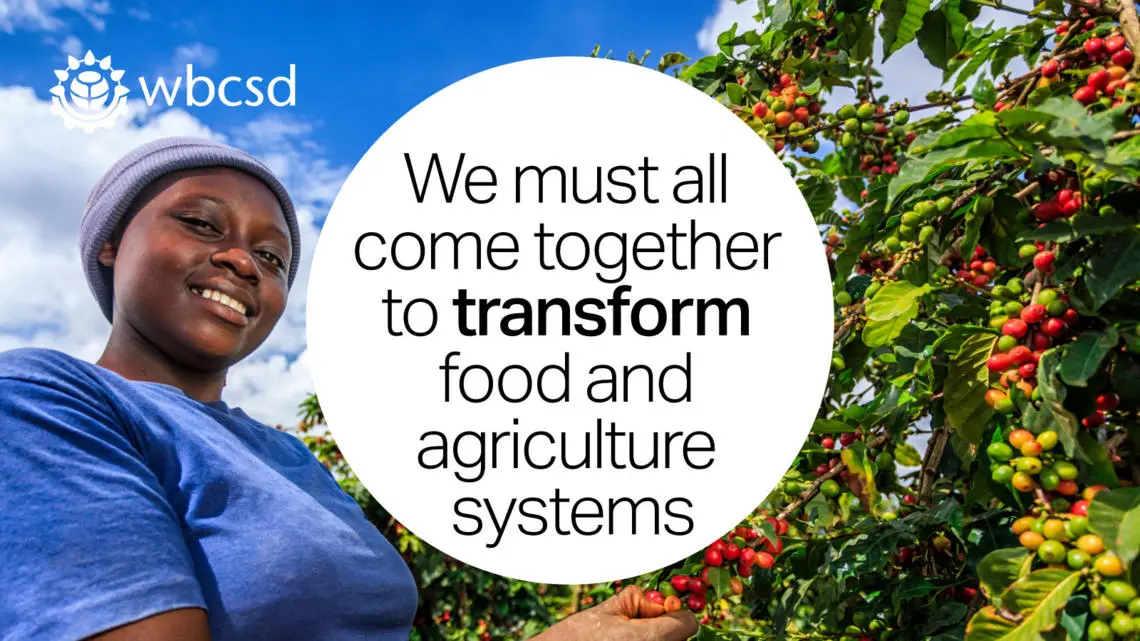Authors
Peter Bakker
This week I attended the EAT Stockholm Food Forum for the third time.
On the first occasion – back in 2014 – I was a ‘stranger in a strange land’, trying to get to know the EAT Forum’s many participating scientists, activists and experts while presenting the case for business to be recognised as having solutions for the challenges facing the global food systems.
Coming back two years later, in 2016, Gunhild Stordalen and myself announced a new partnership between EAT and the WBCSD.
Fork to Farm
EAT and the World Business Council for Sustainable Development (WBCSD) share the same vision of a world where 9+ billion people eat healthy diets produced within the boundaries of our planet. In order for this vision to happen we must bring scientists, governments, civil society and business together to transform the food and agriculture systems. This transformation is critical, as without it the world will not be able to deliver the SDGs.
Next to our partnership, EAT also launched their EAT-Lancet Commission. This Commission brings together the world’s leading scientists to map all science and set science-based targets around healthy diets and the impact of the food & agriculture systems on the Planetary Boundaries.
This week, at the EAT Forum 2017, we were able to bring the first results of the partnership between EAT and WBCSD to Stockholm. The Food Reform for Sustainability and Health (FReSH) project is already supported by 35 companies, ranging from the most innovative (like Protix) to the largest food companies (like Nestle, Danone, Unilever, Kellogg’s and PepsiCo) to find solutions that will deliver the science based targets for sustainability and health and drive the systems to reform.
In the FReSH project, WBCSD brings together companies to work on a number of important solution areas: (a) emission reductions from the food & agriculture systems, (b) elimination of food waste and (c) promotion of dietary changes. The unique character of this work lies in the way it has turned around the lens that most other initiatives use. Rather than looking from ‘farm to fork”, FReSH is looking for food systems solutions from the consumer back to the producer (‘fork to farm’).
Business must drive food systems transformation
Business recognises the need to act. The initial findings of the EAT Lancet Commission confirm the urgent need for a radical transformation of the food systems – as obesity already costs the world 2.7% of its annual GDP; up to 800 million people still go to bed hungry; $7 trillion each year is lost through soil erosion, water depletion and biodiversity loss; and inefficient food systems account for 25% of greenhouse gases.
Only by holistically linking people and their diets back to the farmers that grow our food, will we find the solutions that will drive the transformation. It will not be easy as this is not about incremental tweaks but about radical change that will make business models and sectors change profoundly. It will not be comfortable as there are many competing views and trust within the system is low. However, there is no alternative but to give it our everything to get as many businesses and other actors involved. Our common future and that of the planet on which we all live depends on it.
The EAT Forum is a unique platform for dialogue and collaboration in the food system.
Please check out eatforum.org for much more.
This was originally posted on https://www.linkedin.com/
WBCSD news articles and insights may be republished in accordance with the Creative Commons Attribution-NonCommercial-NoDerivatives 4.0 International Public License, and in accordance with our Privacy Policy. All Content must be featured with due credits.
Outline

